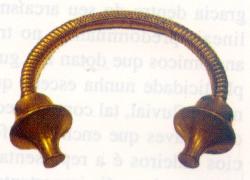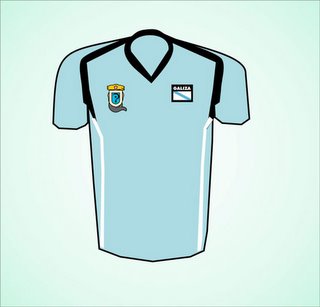
Está-se a preparar um novo estatuto regional para a Galiza. Um novo engano ao povo galego. Um adiar a resolução rigorosa dos nossos problemas socio-económicos e culturais.Uma farsa está a ser bailada por todos os actores do teatro das instituições coloniais.Muitos dirão que é um passo mais.É certo. Um passo mais para o suicídio. A Galiza não é os Paises Catalães que necessitam ao resto do estado espanhol como mercado dos seus produtos. Nós tambêm vendemos na Espanha, mas o nosso futuro é Portugal, é França e o resto da Europa atlántica e continental. O cinto que nos aperta por força ao estado espanhol impede que exprimamos libremente as nossas potencialidades comerciais e tambêm culturais. Galiza necessita ser livre para ser. Necessita ser um estado para estar firmemente unida, sim unida, ao resto do estado espanhol, Portugal e Europa. Hoje estamos afastados dos eixos do comércio e poder na Penínsul. Os mesmos que dizem defender a unidade de não sei que entes etéreos, são os que isolam Galiza. A independência nacional nos unirá por fim com Portugal e os povos espanhóis. Já poderemos ser irmão dos espanhóis se somos livres. Já não serám mirados como ameaças e abusadores e ladrões senão como vizinhos. O mesmo para os catalães e bascos, tão ágeis eles em aproveitar a honradez e o trabalho dos galegos.Galiza deve ser livre para agasalhar Europa e ao mundo. Para receber ao galegos da diáspora forçosa. Aos exilados. Para começar a trabalhar de maneira autocentrada em nós e desenvolver as nossas potencialidades económicas, culturais e solidárias como o resto dos povos livres.A humanidade merece a um povo galego que cointribua ao esforço pola superação das opressões socias e nacionais. Um povo galego que viva em um marco de igualdade de oportunidades nacionais. Que possa mostrar para o que val. Que possa agir sem imposições imperialistas vizinhas.É inaceitável a repressão de galeguistas pelo facto de ter umas ideias distintas do projecto hispano peninsular de asolagamento dos povos e latrocínio das nossas riquezas. A democracia semelha não ter arrivado ainda à Galiza.





